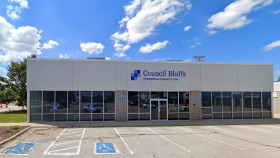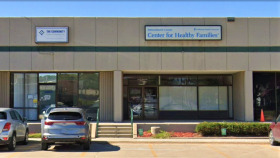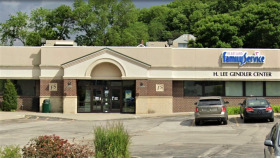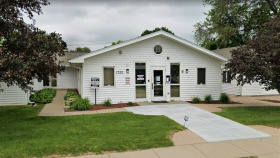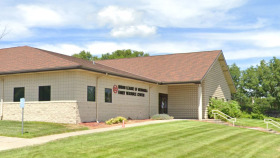Substance Abuse Statistics in Council Bluffs, Iowa
Being such a populous city that’s part of a well-traversed metropolitan area, substance addiction and its subsequent consequences don’t come as a surprise for southwestern Iowa. Having said that, let’s look at some of the most recent facts and figures for substance use in Pottawattamie County:2
Levels of Substance Abuse Care
Various levels of substance abuse treatment are available. You’ll want to know the different options before choosing a program.
Professional Detox
Drug detox is a set of interventions aimed at managing uncomfortable withdrawal symptoms, helping you to achieve a substance-free and medically-stable state. Detox isn’t always necessary, but it is recommended for alcohol, benzo, and opioid addictions.
Inpatient Care
You live at the treatment facility for the entire length of the program, ranging from 30 to 90 days, receiving around-the-clock care, including individual therapy, group therapy, support groups, family therapy, medication (if applicable), and more.
Partial hospitalization programs (PHPs)
You live at home while attending therapy and counseling for several hours each day at a hospital or facility—between 20 and 30 hours per week. This is a great option for those who need a high level of support but don’t want to live elsewhere.
Intensive Outpatient Programs (IOPs)
You live at home while receiving therapy and other services in an outpatient setting for anywhere from nine to 20 hours per week.
Standard Outpatient
The least intensive and structured option, you live at home and receive two to four hours of treatment per week. This option may be beneficial for someone with a mild addiction who has a great support system and strong motivation to get sober.
Relapse Prevention
After completing your initial treatment program, you will want to continue with relapse prevention services, such as support groups, ongoing therapy, transitional housing, or some combination of many services.
How to Pay for Addiction Treatment in Iowa
The following are various ways to finance your recovery program:
Private Insurance
If you have private health insurance from the Healthcare Marketplace or through your place of employment, you can use your insurance to cover the cost of drug and alcohol rehab. By law, your provider is required to cover addiction treatment services to the extent they cover medical services. This means they will likely provide partial or full coverage for treatment.
Iowa Medicaid
Iowa Medicaid is a federal health insurance program that provides coverage for low-income people and families who don’t have access to private insurance. You can use Iowa Medicaid to cover the cost of drug rehab in Council Bluffs.
Medicare
Iowa Medicare provides health insurance coverage to people aged 65 and older. Like Medicaid, Medicare covers substance abuse treatment services, such as inpatient and outpatient rehab as well as substance abuse assessments.
TRICARE in Iowa
Iowa is located in the West Region for TRICARE, a government program providing health insurance coverage for military personnel, veterans, and their families. You can use TRICARE to cover the cost of drug and alcohol rehab, making it more accessible.
Sliding Scale Payment Options
If a free rehab is full or has a long waiting list, you can apply to a sliding scale rehab, which only charges you what you can reasonably pay based on your income.
IHS-Funded Drug Rehabs
The Indian Health Services provides funding for some Iowa drug and alcohol rehab centers, making them able to provide free treatment to Indigenous people.
Is it Easy to Travel to and Within Council Bluffs, Iowa?

Council Bluffs is known for its casinos and being a part of the transcontinental railroad. For these reasons, you’ll often hear Council Bluffs referred to as “Iowa’s Leading Edge.”
If you’re getting ready to start an inpatient or outpatient treatment program in an alcohol or drug rehab in Council Bluffs, you’ll need to know a little more about the city. The same is true for those planning to visit a loved one receiving addiction treatment in Council Bluffs.
Here are a few things you should know about traveling to and getting around Council Bluffs:
- Eppley Airfield is the closest major airport to Council Bluffs, which is just 9 miles away. The closest major international airport is the Des Moines International Airport, which is roughly 133 miles away.
- Council Bluffs has a walkability score of 37, which means only certain areas are walkable, and you’ll need to arrange for transportation if you’re planning certain activities or are staying more than a mile from the treatment center.
- SWITA is southwest Iowa’s public transportation system which provides public transport via metro bus. The Omaha Metro Bus System also serves certain areas of Council Bluffs, and you can also opt for an Uber, Lyft, private car service, or rental car if needed.
- There are all kinds of hotels in and near Council Bluffs to suit all budgets and needs of visitors. This includes Airbnbs.
- Council Bluffs’ main attractions include the Union Pacific Railroad Museum, the Lewis and Clark Scenic Overlook, the Pottawattamie County Squirrel Cage Jail and Museum, Harrah’s Casino, and Lake Manawa State Park.
Iowa Substance Abuse and Treatment Laws
Iowa has several substance abuse and treatment laws that can help save lives, including:1
Residential Substance Use Disorder Treatment Act of 2021: This act increased access to drug addiction treatment services in prisons and jails and helped people transition to treatment in the community.
Americans with Disabilities Act (ADA): This law includes drug and alcohol addiction as a disability, which means you may be eligible to receive disability benefits.
Code of Iowa Chapter 321J.17: This law requires that Iowa drivers who receive a DUI must undergo a substance misuse assessment.
Iowa Good Samaritan Law: This law encourages witnesses to call 911 in the event of an overdose by protecting them from prosecution for drug possession.
Resources
- Center for Disease Analysis Foundation and Iowa Department of Public Health, Bureau of HIV, STD, and Hepatitis. (2019, December). Iowa County-level Vulnerability Assessments for Risk of Opioid Overdoses and Rapid Dissemination of HIV and Hepatitis C.
- Injury Prevention Research Center. (2017, August 1). The Prescription Opioid Crisis: Policy and Program Recommendations to reduce Opioid Overdose and Deaths in Iowa.


